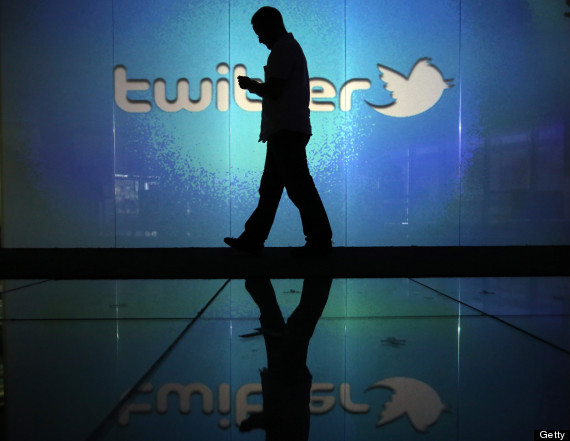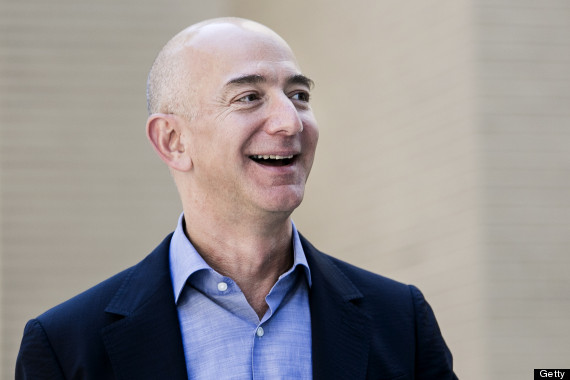
1. The Twitter War
“What’s the worst thing I can do as C.E.O. to screw the company up?” Evan Williams, a co-founder of Twitter, asked Bill Campbell, an adviser who had been brought in during a tumultuous period in the company's early years. Campbell responded, “Hire your friends!”
But, as the New York Times' Nick Bilton writes in an excerpt from his new book Hatching Twitter: A True Story of Money, Power, Friendship, and Betrayal, Williams ignored the advice. He hired his sister, his wife and numerous friends, including Dick Costolo, who came on board as chief operating officer.
“First full day as Twitter COO tomorrow,” Costolo wrote in his first tweet. “Task #1: undermine CEO, consolidate power.”
Costolo was joking, of course. But not too much later, Williams was out as CEO and Costolo was in charge. And Jack Dorsey, another Twitter co-founder whom Williams had forced out, was back in as well.
If Twitter now seems like an essential and undeniable part of modern life, Bilton makes it clear that it was not always so. Like so many other Silicon Valley startups, its beginnings were rocky and its viability as a business was uncertain. Bilton blows up Twitter's creation myth.
Bonus: In The New Yorker, D.T. Max profiles Dorsey, "a techno aesthete in the manner of Steve Jobs." If there is still skepticism about Dorsey's actual contributions to Twitter -- “The greatest product Jack Dorsey ever made was Jack Dorsey,” one former Twitter employee tells Bilton -- Dorsey is now seeking to prove his critics wrong.

2. It's Not Personal, It's Just Business
One CEO who does not appear to let personal feelings get in the way of business is Amazon's Jeff Bezos. As Brad Stone writes in Bloomberg Businessweek, in an excerpt from his book The Everything Store, Bezos is a ruthless executive. "His drive and boldness trumps other leadership ideals, such as consensus building and promoting civility," Stone writes. "While he can be charming and capable of great humor in public, in private he explodes into what some of his underlings call nutters."
A colleague failing to meet Bezos’s exacting standards will set off a nutter. If an employee does not have the right answers or tries to bluff, or takes credit for someone else’s work, or exhibits a whiff of internal politics, uncertainty, or frailty in the heat of battle -- a blood vessel in Bezos’s forehead bulges and his filter falls away. He’s capable of hyperbole and harshness in these moments and over the years has delivered some devastating rebukes. Among his greatest hits, collected and relayed by Amazon veterans:
“Are you lazy or just incompetent?”
“I’m sorry, did I take my stupid pills today?”
“Do I need to go down and get the certificate that says I’m CEO of the company to get you to stop challenging me on this?”
“Are you trying to take credit for something you had nothing to do with?”
“If I hear that idea again, I’m gonna have to kill myself.”
There are many, many more. But, Stone writes, "To the amazement and irritation of employees, Bezos’s criticisms are almost always on target."

3. Keep Your Friends Close
Then again, hiring your friends can sometimes work out well. In Vanity Fair, Lisa Robinson talks extensively with Jay Z, who has surrounded himself with longtime pals, and has, in case you hadn't noticed, done quite well for himself.
Upstairs in his owner’s suite, Jay Z leaned back on one of the white leather sofas that line the large room. The noise in this room came from the game on two large flatscreen TVs and the loud camaraderie of Jay’s guests -- most of whom are his closest friends, people who’ve been in his inner circle for years. Among them: Juan Perez, the president of the newly formed Roc Nation Sports; William “World Wide Wes” Wesley, a consultant to CAA Sports, which has recently partnered with Roc Nation Sports; Tyran “Ty Ty” Smith, a friend of Jay’s for 25 years and head of A&R for Roc Nation Records; and his longtime trusted publicist, Jana Fleishman.
"Everyone knows he’s really smart, really talented, really rich, and wildly successful," Robinson writes. "But in his private suite, he’s the Jay Z that only his friends and family get to see: extroverted, curious, gregarious, hilarious, and downright chatty. "

4. The New Music Economy
Over at Mashable, Max Blau takes an in-depth look at Spotify, the streaming music service. While the company has been trying to position itself as the future of the music industry, an alternative to illegal downloading and a source of revenue for artists, it has also faced a good amount of criticism recently. Earlier this month, Radiohead lead singer Thom Yorke called Spotify "the last desperate fart of a dying corpse," and called on musicians to "fight the Spotify thing."
However, Blau finds that smaller bands, while not exactly getting rich off of Spotify, are still benefiting from having their music available through the service. The band Spirit Animal's single "The Black Jack White" has become a popular song on Spotify, thanks to its inclusion in a playlist by Sean Parker. That raised the band's profile, translating into larger and more engaged audiences at shows, and also helped defray touring costs.
“I don't know if [Spotify’s] a game-changer,” the band's guitarist Cal Stamp tells Blau. “It's definitely helpful. It's a tool in the box of tools.”
5. Rock Of Middle Age
This more practical idea of what constitutes success for a rock band is captured nicely in Devon Maloney's article on The Dismemberment Plan in Wired. After breaking up in 2003, the band has now reunited and has just released a new album, Uncanney Valley. But in the decade since they disbanded, the members of the band have also taken on adult responsibilities: jobs, families, children, mortgages.
“Before, it was very important for my generation to believe that you didn’t have a day job. There were these aspirations [that] over the hill, there is this golden city where you didn’t have a job and you just played music all day," Travis Morrison, the band's lead singer, tells Maloney. "I’m not so sure that’s a widespread construct anymore."
(Disclosure: I'm friends with Morrison and Eric Axelson, the band's bassist. Morrison also worked at The Huffington Post before launching his new startup, Shoutabl.)
"Back in the day, we definitely did not make enough money to keep up with two children and health insurance and mortgage payments," says drummer Joe Easley, who works as an engineer at NASA. "Even now, I don’t think we could do that."
And while many musicians undoubtedly hope to become as successful as Jay Z, that's rarely possible today. Even popular bands struggle, as New York Magazine's profile of Grizzly Bear pointed out last year.
Luckily, Morrison points out in Wired, the idea of bands with day jobs is “far less of an affront to the cosmos” than it might have been before.
Rock on.
Have you read a good longform feature lately? Email me at sasha@huffingtonpost.com. You can also follow me on Twitter.
